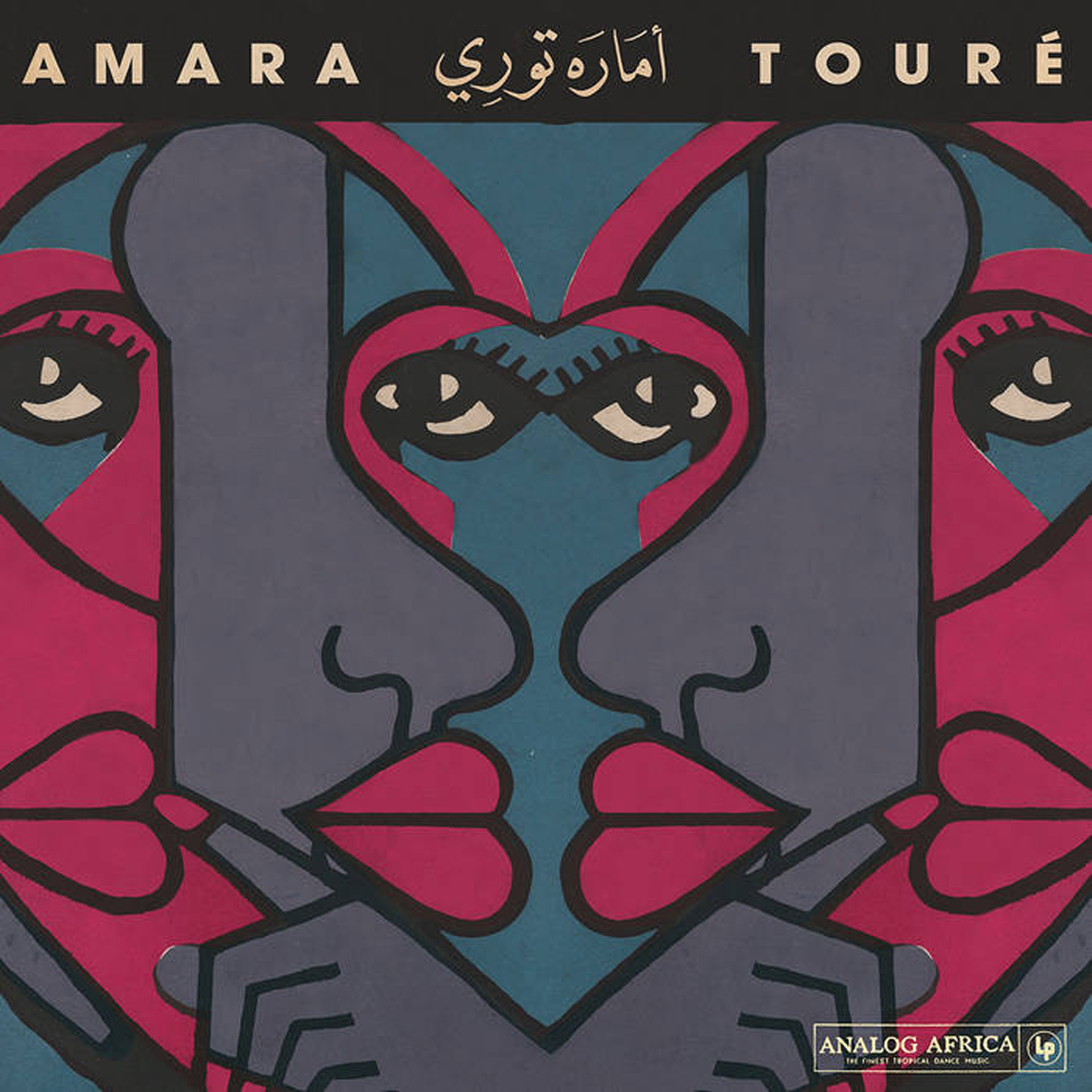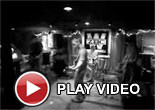Amara Touré, "1973 - 1980"
 In a perfect world, an artist of Amara Touré’s caliber would need no introduction at all, but the real world is weird and mysterious enough to definitely warrant one in this case, so here it is: Touré’s innovative, sensuous, and sexy Cuban-influenced grooves basically ruled the nightlife in Cameroon and Senegal for roughly two decades, but he only recorded a handful of songs and then disappeared without a trace around 1980.  This collection compiles all of his known singles as well as his sole album and it is all great.  To my ears, this is a lock for the most crucial reissue of the year.
In a perfect world, an artist of Amara Touré’s caliber would need no introduction at all, but the real world is weird and mysterious enough to definitely warrant one in this case, so here it is: Touré’s innovative, sensuous, and sexy Cuban-influenced grooves basically ruled the nightlife in Cameroon and Senegal for roughly two decades, but he only recorded a handful of songs and then disappeared without a trace around 1980.  This collection compiles all of his known singles as well as his sole album and it is all great.  To my ears, this is a lock for the most crucial reissue of the year.
The album kicks off with the only piece that most listeners are likely to have heard before: the smoky and slinky "N'Niyo," which surfaced on Honest Jon’s 2009 Africa Boogaloo collection.  Its original release date appears to be unknown, but it was recorded with The Black and White Ensemble in Cameroon sometime between 1973 and 1976.  Despite being one of his earliest releases, it is nonetheless a strong contender for Touré’s finest song.  If not, it still certainly exhibits all of characteristics that make Amara's work such a singular pleasure: a slow, lazily sexy Latin groove; smoky saxophone; spidery guitars; punchy horn stabs; strong hooks; and his own distinctively passionate and sadness-tinged vocals.  Notably, Touré was a vocalist/percussionist, so I would expect those to be the strongest aspects of his work, but the details that I actually like the most are the intricate, clean guitars and the wounded, lovesick-sounding horns.  Those details work, however, precisely because Touré had such a brilliantly intuitive grasp of mood and pace as a bandleader, avoiding all of the usual pitfalls of the era in favor of a stylish, understated, and deeply sensual aesthetic.
The rest of Touré’s work with The Black and White Ensemble (they recorded a total of three singles together) basically sticks to the same vein of smoldering, Latin-tinged sex music with a similarly consistent degree of success.  There are, however, some shades of mood that differentiate the six pieces.  "Temedy," for example, is a bit more funky and driving, while "Fatou" is a bit more breezy and tropical-feeling.  The only truly significant divergence is "N'ga Digne M’be," which sounds deeply indebted to America soul ballads of the era, which arguably makes it the weakest piece on the album.  I still like it, but it is primarily a vocal showcase, completely eschewing the Latin-influence and propulsive grooves that characterize Touré's best work.  The remaining pieces, however, ably fill that void (particularly "Lamento Cubano").
The final four songs are all culled from Touré's sole album, released in 1980 with Gabon's Orchestre Massako as his backing band.  Unsurprisingly, they are all wonderful as well, but they are a bit more muscular, adventurous, and urgent than Amara's earlier work.  They are also a lot more raw, sound-quality-wise, which I actually like (these pieces feel more "live" and immediate).  The best of the bunch by a landslide is "Salamouti," which boasts a wonderfully staccato and stumbling descending melody.  "Tela" is yet another stand-out due to its thick, lazily lagging bass line, but it is the closing "Africa" that is most attention-grabbing, as Orchestre Massako embellishes their funky, sinuous grooves with unexpectedly flanged and spacy guitars.
Overall, "Salamouti" is probably Amara's finest single moment, but I otherwise prefer his more sensuous and distinctive early singles to his full-length.  That said, Touré's voice and songwriting remained as strong as ever until the very end–I just happen to prefer my classic African music to be more Cuban-influenced and laid-back.  In any case, Analog Africa did a characteristically amazing job with this release, which is no small feat since the artist in question has not been seen in over 30 years and no one knows whether he is alive or dead.  To his credit, Samy Ben Redjeb found several associated musicians to interview and compiled a fairly comprehensive biography of a genuine enigma.  I wish that there had been more recordings to find: Touré's entire 10-year run with Le Star Band de Dakar as Senegal’s hottest nightclub musician (1958-1968) is entirely undocumented (recording studios were a tragic rarity in Africa back then).  Still, I will happily take what I can get: this is an essential release for anyone interested in African music and one of the true jewels of Analog Africa’s discography (alongside Diablos Del Ritmo, of course).
 



